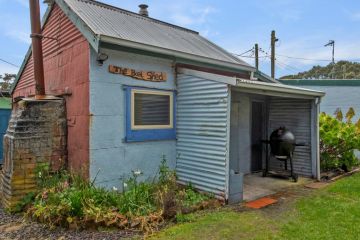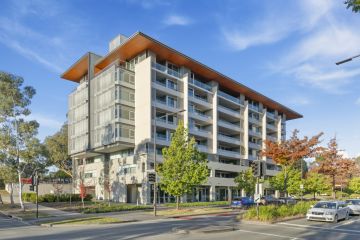Is now a good time to get a discount when buying an apartment off the plan?

Tight supply and strong demand from investors and first-home buyers have propped up prices for new homes amid the coronavirus pandemic, but experts say it’s a buyer’s market and sellers are open to negotiate.
While some luxury off-the-plan properties are seeing price discounts as a result of COVID-19, buyers of affordably priced new properties won’t be as lucky, but could secure more favourable terms.
“You may be able to negotiate a reduced deposit, rental guarantees or the ability to exit without penalty if your job situation changes,” says David Hancock, managing director, Binnari Property and Montara Wealth.
Hancock says properties valued over $1.5 million are being discounted by between 5 and 10 per cent, but cheaper properties favoured by first-home buyer and investors aren’t falling in value.
“Most investors buy properties valued below $700,000. Prices in that part of the market are holding up well,” he says.
Supply and demand
Home completions are likely to be drastically lower in the next year as a result of COVID-19.
“This could mean demand will outstrip supply – provided we go back to business as usual after the lockdown,” says property consultant Alan Yeung from real estate agency Location Property Group.
He notes the off-the-plan market has shrunk substantially subsequent to stricter lending criteria introduced in 2017.
At the same time, until COVID-19 shut the borders, Australia’s population was growing, in large part due to migration, which was driving demand.
Domain economist Trent Wiltshire agrees the hit to migration has affected the off-the-plan market, but said this trend could reverse.
“The inner-city apartment market has been hit because overseas students and workers are no longer coming here or they are going home,” he says.
“But there is potential for that to bounce back quite quickly next year. The way Australia has handled the virus might make us a very attractive destination for migrants. So the mid-term outlook is good.”
Steve Williams, international marketing director for Caydon Property, says some developers have delayed launching projects over the past month. But he says COVID-19’s impact on supply has been negligible so far, although buyers are taking longer to make decisions.
“Construction has continued across Melbourne so apartment completion deadlines are largely still on track. As it stands, 2021 will see an overall shortage in apartments in Melbourne, however this is not directly related to COVID-19.”
Caydon is among developers who have offered some buyers a redundancy clause in their contract of sale, which allows them to get out of the contract if they lose their job as a result of COVID-19.
Stockland’s general manager of sales Stephanie Vanin says some customers are taking a wait-and-see approach. “They want confidence about where the market is headed.”
Stockland is less affected given the property group plans its off-the-plan communities many years in advance. Nevertheless, Vanin says buyers are willing to negotiate.
Managing risks
Although this is important at the best of times, at the moment it’s essential to avoid developers and builders who have had significant issues with other projects in the past, either during pre-sales or post-construction.
Substantial due diligence on the developer and the performance of their past projects is vital. This will help give buyers reassurance that the developer won’t vanish with their deposit.
“Select quality developments with lower density, larger floor plans and a high level of finishes,” says Hancock.
“These are features that will be valued by renters now and also by future owners should you wish to exit in the future.
“Invest in areas with good rental returns, low vacancy rates and an undersupply of competing properties.”
Yeung says it’s also important to choose an area you can actually afford over one where you aspire to live.
“Bank valuations are an important consideration,” he said. “Oversupply in any market could be a risk.”
This risk is mitigated if the development is in an area where sales volumes are still healthy.
Overall, in a post COVID-19 environment, expect the off-the-plan market to stabilise thanks to limited supply, record low interest rates and the flow-on effects of government stimulus.
We recommend
We thought you might like
States
Capital Cities
Capital Cities - Rentals
Popular Areas
Allhomes
More
- © 2025, CoStar Group Inc.







